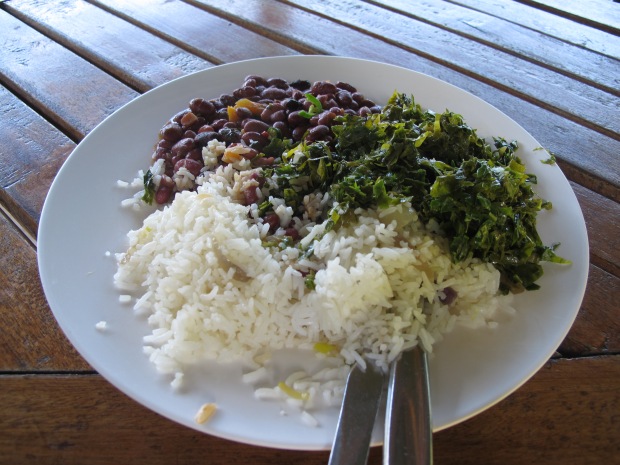A colleague’s sister died recently. I’m close to this colleague so I knew her sister was ill and this was likely to happen. The sister had two young children so my colleague took a month off to go home, help look after the children and prepare the funeral.
A few days after I heard the news, a piece of paper that looked like a sponsorship form was passed round the office. It turned out to be a collection to help contribute to the costs of the funeral. I was so surprised – and yet it seemed totally right and wonderful.
Since then I’ve become used to being called upon to chip in for things for colleagues who I sometimes know only in passing (my workplace is HUGE with hundreds of staff). I’ve supported funerals, a wedding and, my favourite so far, entry into an international scrabble championship for a colleague who competes (and is lobbying hard to get scrabble recognised as a national sport so that players can get bursaries from the Government rather than relying on friends and family to fund trips to overseas matches!).
This pulling together to help each other out financially makes total sense in a country where the state safety net is sorely lacking although I still can’t quite shake my British squeamishness about asking and giving money for what seem such personal and private issues.
Another colleague, a lovely man who is trying desperately to teach me Swahili and growing ever more frustrated with my slow progress, took in his brother’s five children after his brother’s death a few months ago. Along with his own children, he now has nine at home to support. Unsurprisingly he is struggling. He asked me early on whether I knew about any scholarships he could apply for to get the children to school. I was frustratingly clueless and felt awkward that there was nothing I could do to help. Then a few months later he knocked on my office door with a bag full of sandals. As soon as he asked me what size feet I had I knew I would be buying a pair regardless of whether I liked or needed them. That wasn’t the point. The point was he was desperate for extra cash and this was a dignified way of getting it.
Despite what people say about there not being a tradition of philanthropy in Africa, and the lack of a large middle class with surplus cash to donate, the extent of community giving is significant. And it has a long history. A harambee is a traditional community fundraising event where people donate money for specific, local causes. It literally means “all pull together” in Swahili and is even the national motto! For a number of reasons these large-scale community events are in decline and I’ve never been to one – perhaps they are also slightly more common in rural areas where communities are more tightly knit. But on an individual to individual level the belief is supporting other people in their moment of need is alive and kicking even in the big, bad capital city.
Perhaps most remarkable to me though is this feeling of obligation to one another doesn’t just happen on an individual level. It also happens on a corporate level. Chatting to our HR Manager about one of the caretakers this morning, I found out he was due to retire shortly. Incredibly (or so it seemed to me), the company had approached the man and asked him who from his family he would like to be employed when he retired. Everyone knew the family would still need to find a way to put food on the table and so the right thing to do would be to give someone else – someone a bit younger – a job. Apparently it’s a benefit any long-term employee gets. Have you ever heard of a more compassionate company policy?!
